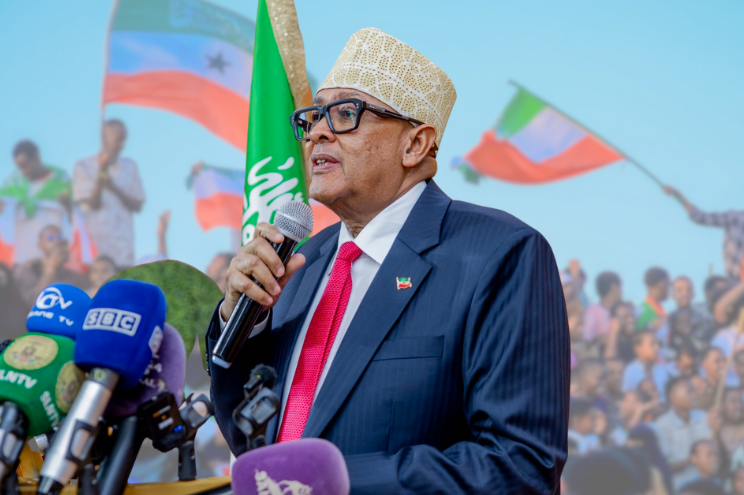
Somali Public Agenda
March 6, 2024
Prospects For Somalia’s Transition From Clan-Based Politics To Multipartyism In The 2026 Election
This paper explores the possibilities of Somalia’s transition from a clan-based system of the allocation of political authority to multipartyism. In so doing, the paper adopted qualitiative methods of data collection and analysis. The paper shows that a transition to multiparty- based elections in 2026 still remains a distant dream, owing to a critical lack of the legislation and institutions needed for this to happen. The legislation missing includes that required for a new electoral model, as well as for citizenship, civil registration, a constitutional court, anti-corruption measures and campaign financing. As it stands in early 2024, the provisional constitution remains unfinalized, making the prospect of putting a new constitution in place in time for the 2026 elections less likely. Challenges, such as insecurity, a lack of political will, inadequate financing, the lack of civic education and the continuation of squabbles between Somalia’s federal government and its constituent member states continue to frustrate a transition towards multiparty-based elections. Hence, this paper recommends that the Federal Government of Somalia accelerate its finalizing of the provisional constitution—a move key to overcoming the many challenges arising from its current incomplete state—and embark on legislative reforms in the areas, such as citizenship, mentioned above. Furthermore, the federal government and its constituent units should prioritize the holding of local level elections to set the stage for multiparty-based elections at the national level.
This report has been published as a result of Farhan’s training in the Rift Valley Institute’s (RVI) Research Communities of Practice (RCoP) project. The paper therefore reflects the views of the author and not those or the position of the Rift Valley Institute and Somali Public Agenda.





With my party,
I am hoping that united great Somalia.